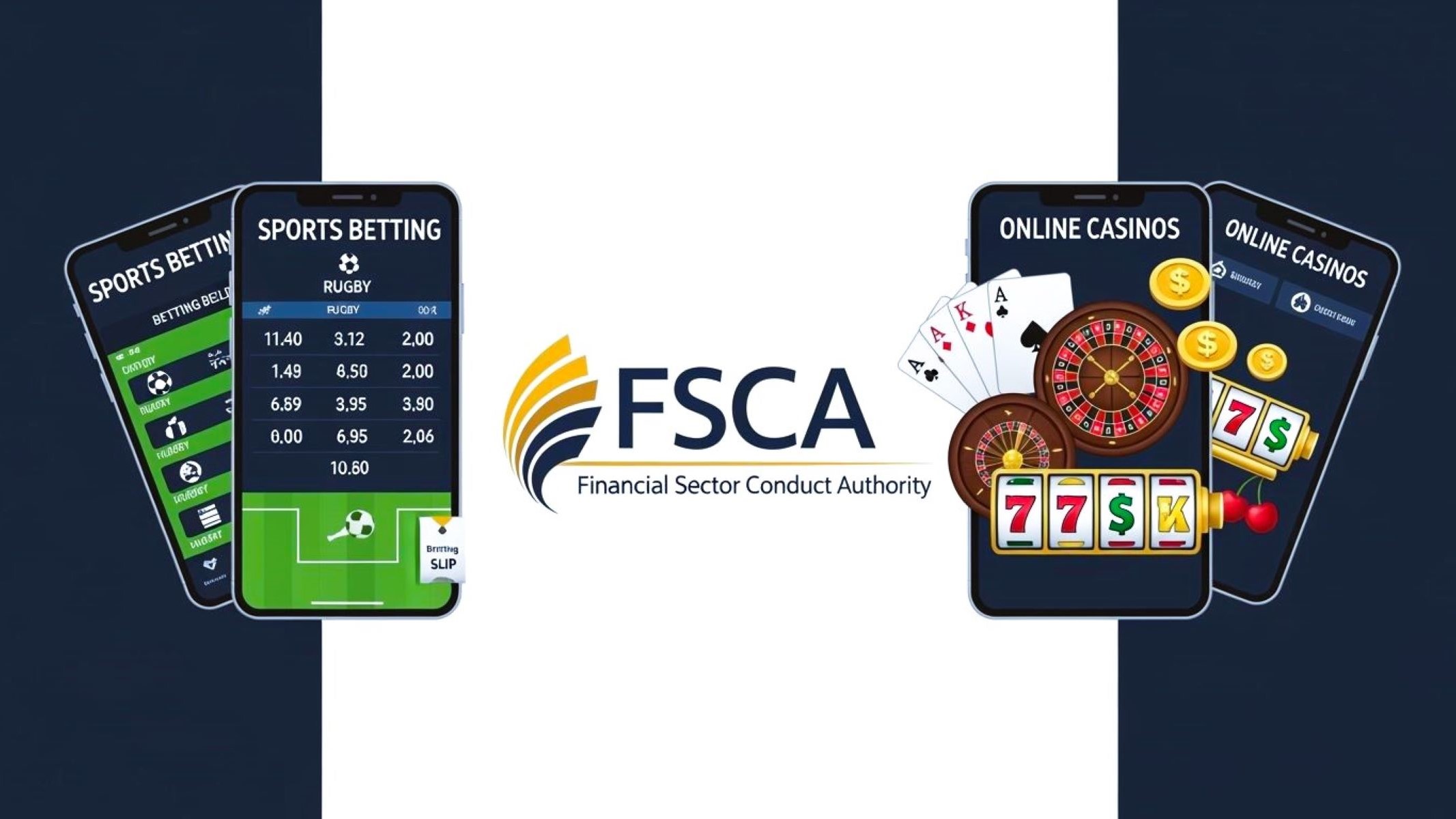Let’s start at the very beginning. The FSCA stands for the Financial Sector Conduct Authority of South Africa. It’s the watchdog for the country’s financial sector, keeping a sharp eye on how companies treat consumers. Think of them as the referee in a high-stakes match—making sure the game is fair, the rules are followed, and no one cheats. When it comes to online gambling, the FSCA doesn’t operate in isolation. It plays an increasingly important role as digital betting platforms blend financial transactions with risk-based entertainment.
Why Does the FSCA Matter in Online Gambling?
Online gambling is far more than just a fun pastime or a casual way to pass time; it involves real money transactions that require oversight to ensure safety and fairness. When you place a bet or deposit funds into an online casino or sportsbook, your money moves through a complex network of digital wallets, payment gateways, and sometimes even cryptocurrency systems. This financial movement makes the role of the Financial Sector Conduct Authority (FSCA) critical because they oversee how money is managed and protected within the industry.
The FSCA’s primary concern is to make sure that licensed gambling operators conduct their financial activities ethically and fairly. This means the FSCA ensures that these operators are not only transparent about how they handle players’ money but also follow strict rules designed to prevent fraud and misuse of funds. Without such oversight, players would be vulnerable to dishonest practices, hidden fees, or delayed payouts, which can seriously damage trust in online gambling platforms.
In addition to monitoring operators, the FSCA plays a vital role in protecting players from scams and unfair practices that can easily thrive in the fast-paced online gambling environment. By regulating the financial services linked to these platforms, the FSCA ensures that players’ deposits, withdrawals, and winnings are handled securely and fairly. This regulatory presence acts as a safeguard against fraudulent schemes and unethical behavior that could otherwise harm consumers.
Lastly, the FSCA supports compliance with broader financial laws such as anti-money laundering (AML) and know your customer (KYC) regulations. These rules require gambling platforms to verify the identity of their users and monitor transactions for suspicious activities. This ensures that online gambling is not used as a channel for laundering illegal money and that players themselves are protected from risks associated with unregulated financial flows. In this way, the FSCA helps create a safer and more trustworthy environment for everyone involved in South African online gambling.
FSCA vs. Other Gambling Regulators
Here’s a detailed breakdown explaining the differences between the FSCA and other gambling regulators, laid out as a comprehensive list for clarity:
- The Financial Sector Conduct Authority (FSCA) oversees financial conduct across all sectors in South Africa, not limited to gambling alone. Their primary role is to regulate how financial transactions are handled to ensure transparency, fairness, and protection for consumers.
- The FSCA focuses on payment systems connected to gambling platforms, making sure money deposited, withdrawn, or transferred through these platforms follows strict financial rules and is safeguarded from fraud or misuse.
- Unlike typical gambling regulators, the FSCA does not issue gambling licenses for casinos or sportsbooks. Instead, it licenses and supervises financial service providers, payment processors, and other entities that handle money within or alongside gambling operations.
- The National Gambling Board (NGB) is the main regulator that governs gambling legality and licensing in South Africa. Their job is to ensure that gambling operators have proper authorization and that games comply with South African gambling laws.
- The NGB’s role centers on enforcement of gambling standards, making sure casinos, online platforms, and betting operators operate fairly and within the legal framework established by South African legislation.
- While the NGB regulates whether an operator can legally run a casino or sportsbook, the FSCA watches how those operators manage their customers’ money and financial transactions.
- Internationally, countries often have specialized gambling regulators, such as the Philippine Amusement and Gaming Corporation (PAGCOR) or the UK Gambling Commission (UKGC), which oversee licensing, compliance, and regulation of gambling businesses within their borders.
- These country-specific regulators generally handle all aspects of gambling operations, including issuing licenses, monitoring fairness of games, player protection, and enforcing local gambling laws.
- The FSCA differs because it is a financial regulator, not a gambling operator regulator. It steps in when the gambling business intersects with financial markets, focusing on consumer protection related to money movement, anti-money laundering, and financial transparency.
- Both the FSCA and other gambling regulators like the NGB often work in tandem to ensure a holistic regulatory environment: the NGB oversees the gambling activities themselves, while the FSCA ensures that the financial side of those activities meets rigorous standards.
- For players, this means there is a two-layered protection system—one that verifies the legality of the operator and game fairness, and another that safeguards your money and enforces ethical financial behavior.
A Brief History of the FSCA
| Year | Previous Entity | New Entity Created | Purpose of Restructuring | Role in Online Gambling |
| Before 2018 | Financial Services Board (FSB) | Financial Sector Conduct Authority (FSCA) | To implement the “Twin Peaks” regulatory model | FSCA oversees financial market conduct, including online gambling-related financial services |
| 2018 | N/A | FSCA officially established | To separate prudential regulation from market conduct | FSCA monitors how online gambling platforms handle financial transactions and protects consumers |
| 2018 | N/A | Prudential Authority | Regulate financial institutions’ health | Focuses less on gambling, more on institutional financial stability |
| Post-2018 | FSB | FSCA and Prudential Authority split responsibilities | To improve regulatory efficiency and consumer protection | FSCA targets financial services linked to gambling, like payment systems and investment scams |
| Ongoing | FSCA | Ongoing development of frameworks | Strengthening market conduct supervision | FSCA continues expanding role in regulating online gambling’s financial side, including crypto payments and anti-fraud efforts |
How Online Casinos Must Comply with FSCA Rules
Operating an online casino legally within South Africa means more than just having a gambling license; if the platform offers financial services, it must comply with the rules set by the FSCA. This regulatory body ensures that any gambling operator handling money follows strict guidelines designed to protect consumers and maintain financial integrity. This compliance isn’t optional—it’s essential for casinos wanting to build trust and operate transparently in a highly competitive market.
One of the first steps for online casinos is to register as financial services providers (FSPs) with the FSCA. This registration means the casino is recognized as a legitimate financial entity responsible for managing client funds appropriately. It’s a clear signal to players that their deposits and withdrawals are handled within a legal and regulated framework, reducing the risk of fraud or mishandling.
Transparency is another cornerstone of FSCA compliance. Casinos must openly communicate how deposits, withdrawals, and bonus systems work. This includes explaining any fees, processing times, and terms tied to bonuses or promotions. Such transparency helps prevent misunderstandings and builds confidence that the casino operates fairly, rather than hiding critical financial details behind confusing terms and conditions.
Lastly, online casinos must demonstrate adherence to data protection laws and contribute to consumer financial education. This means protecting sensitive player information and ensuring users understand the risks and responsibilities involved in gambling. By doing so, casinos not only comply with legal standards but also promote responsible gambling habits, aligning with the FSCA’s mission to safeguard consumers both financially and personally.
Spotlight on Consumer Protection
- One of the FSCA’s main priorities is protecting consumers who use online gambling platforms, ensuring that players are treated fairly and transparently throughout their gaming experience. This protection covers how money is managed, how information is shared, and how risks are communicated.
- Transparent payouts are a crucial part of consumer protection. The FSCA requires online casinos to provide clear and accurate information about how and when players can expect to receive their winnings. This includes setting reasonable payout timelines and explaining any fees or conditions attached to withdrawals. By doing this, the FSCA helps prevent frustrating delays or unexpected deductions that can leave players feeling cheated.
- Safe payment options are another key area under FSCA oversight. The authority insists that only regulated and secure financial tools be used for deposits and withdrawals. This means platforms must use trusted payment methods like electronic funds transfers (EFTs), reputable e-wallets, and other vetted payment systems. This requirement reduces the chances of players falling victim to fraud or dealing with unreliable third-party payment processors.
- The FSCA also demands clear and straightforward bonus policies from online casinos. Many players get tripped up by confusing terms and conditions linked to welcome offers or promotions. To protect consumers, the FSCA pushes operators to fully disclose all the rules surrounding bonuses, including wagering requirements and any restrictions. This transparency helps players make informed decisions and avoid being misled by clever marketing tactics.
- Beyond these specific protections, the FSCA’s consumer focus extends to ongoing education and awareness, encouraging operators to inform players about the risks involved with gambling and promoting responsible behavior. This holistic approach ensures that consumer protection is not just about rules but also about empowering players with knowledge and tools to gamble safely.
Online Gambling and Investment Scams
| Scam Type | Description | How It Masquerades | Risks to Players | FSCA’s Role |
| Ponzi Schemes as Crypto Casinos | Fraudulent schemes promising high returns by using new investors’ money | Presented as crypto-based gambling platforms offering quick profits | Loss of all invested funds, no real gambling | FSCA identifies and shuts down these schemes, issues warnings to the public |
| Forex Betting Platforms | Platforms claiming to combine forex trading with betting for “safe” returns | Marketed as low-risk gambling opportunities tied to currency trading | Financial losses, misleading claims about safety | FSCA monitors financial products, enforces licensing and compliance |
| Fake Lotteries and Sweepstakes | Fraudulent contests requiring upfront “entry investments” to participate | Advertised as legitimate lotteries or prize draws | Loss of entry fees, no actual prizes | FSCA tracks unregistered operators, warns consumers against participation |
| Unlicensed Gambling Operators | Online casinos or betting sites operating without proper licenses | Claim legitimacy through fake certificates or misleading marketing | Increased risk of fraud, unfair gaming conditions | FSCA maintains public lists of unlicensed operators and pursues legal action |
| Investment-Style Gambling Schemes | Platforms blending gambling with investment promises to lure players | Advertise gambling as an investment opportunity with guaranteed returns | Losses due to unrealistic returns and lack of regulation | FSCA regulates financial aspects, shuts down misleading operations |
Crypto Gambling and FSCA’s Expanding Role
The rise of cryptocurrencies like Bitcoin and Ethereum has dramatically changed the landscape of online gambling. Cryptocurrencies offer players a new level of privacy and speed when making transactions, which many find appealing. However, this anonymity also opens the door for fraudsters and criminals to exploit gambling platforms, making regulation essential. The fast-paced growth of crypto gambling means regulators like the FSCA have to adapt quickly to new challenges and risks in the financial ecosystem.
Recognizing this, the FSCA is actively working on developing regulatory frameworks specifically tailored to crypto assets. One of the main focuses is making it mandatory for crypto asset service providers (CASPs)—companies that facilitate crypto transactions—to obtain proper licensing. This step ensures that these providers operate under strict standards and legal oversight, reducing the chances of scams and unlawful activities involving cryptocurrencies in gambling.
Another important part of the FSCA’s approach involves enforcing robust Know Your Customer (KYC) and Anti-Money Laundering (AML) procedures for crypto wallets used in gambling. These processes require platforms to verify the identity of their users and monitor transactions closely. This helps detect and prevent suspicious activities such as money laundering or funding of illegal enterprises, which could otherwise flourish under the veil of crypto anonymity.
Finally, the FSCA is pushing for enhanced player verification measures on gambling platforms that accept cryptocurrencies. This means operators must implement stronger controls to confirm the identity and legitimacy of their players before allowing crypto transactions. These measures aim to protect consumers, promote responsible gambling, and uphold the integrity of the financial system within the rapidly evolving world of crypto gambling.




